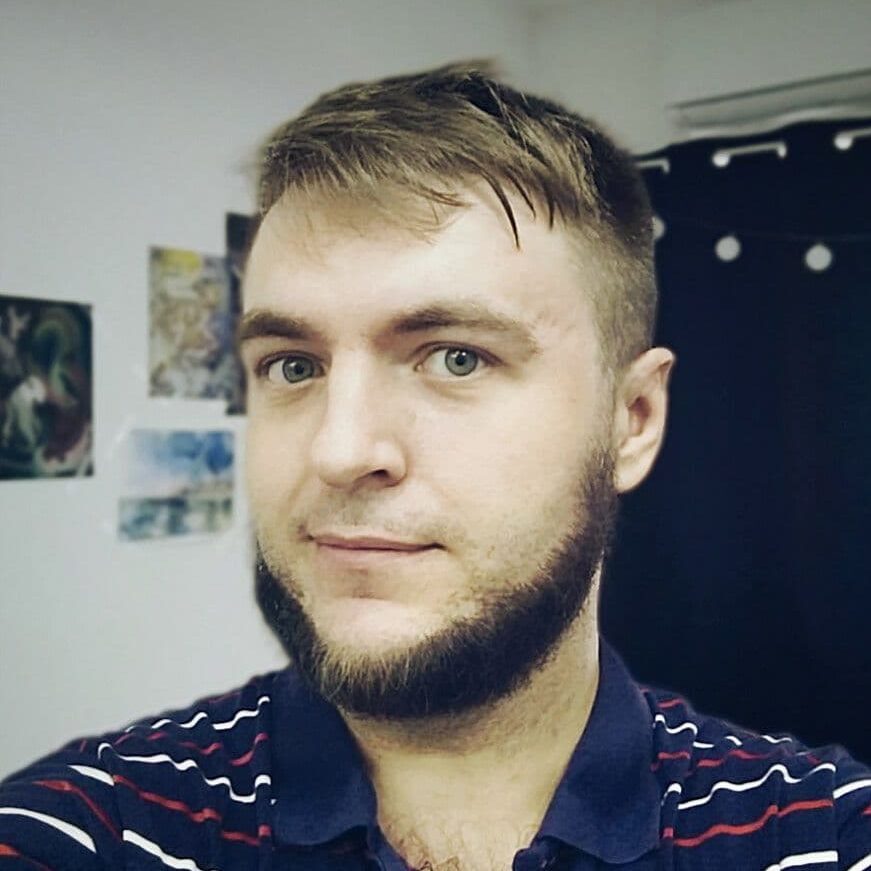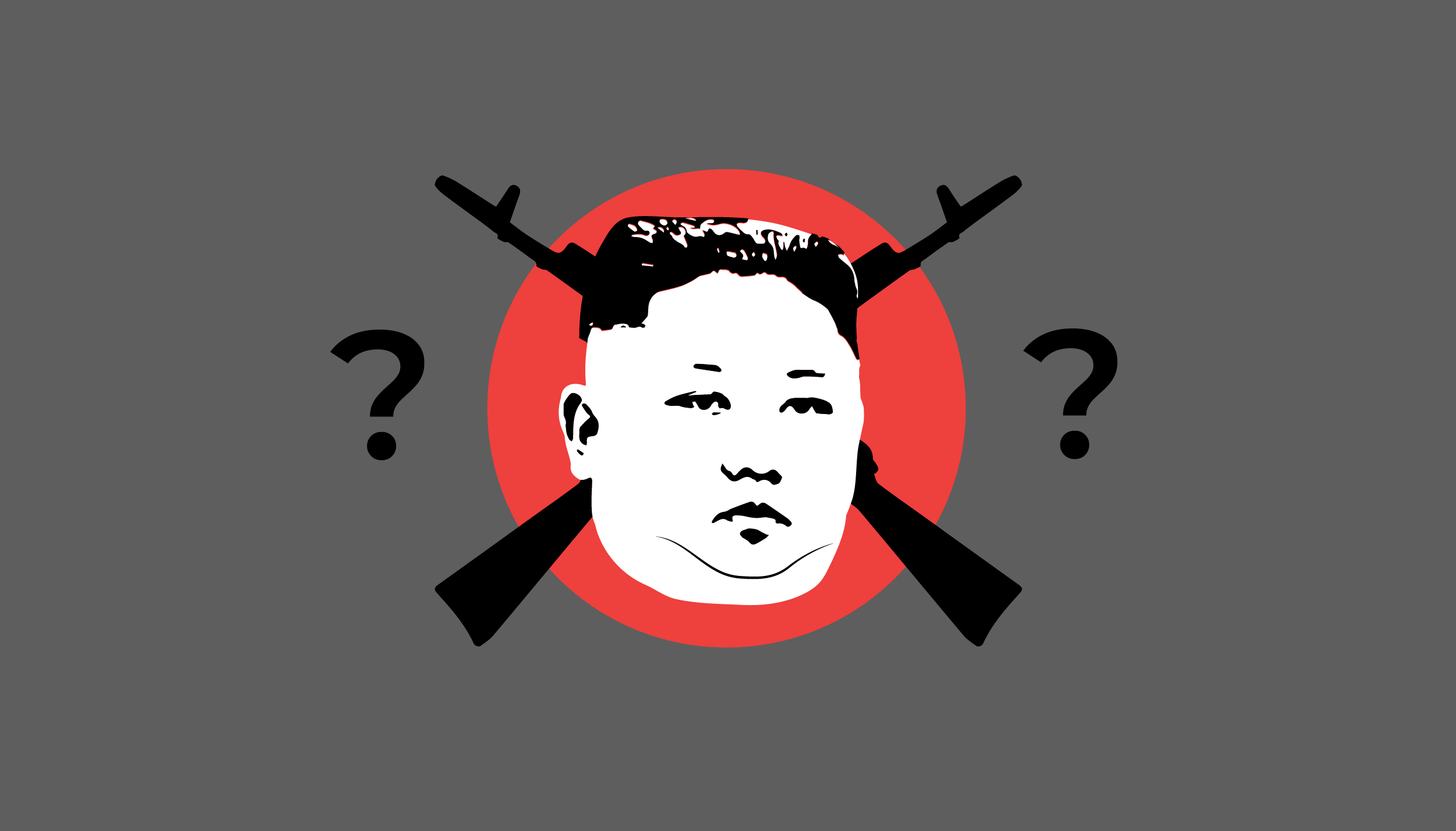

Читайте також українською.
“NATO fears a military alliance between Russia and North Korea,” and Zelenskyy “is selling off Ukraine’s natural resources” — these are the key narratives promoted by Russian and pro-Russian Telegram channels.
On the evening of October 14, after a meeting of the General Staff, President Volodymyr Zelenskyy announced in a video address his intentions to present a strategy to European partners aimed at compelling Russia to a just conclusion of the war. He also mentioned the “de facto involvement of North Korea in the war.” On October 16, during a session of the Verkhovna Rada, the President publicly unveiled his Victory Plan, which consists of five points and three classified appendices. During his speech, Zelenskyy also declared that two more countries — Iran and North Korea — had effectively joined Russia in its war against Ukraine:
“The coalition of criminals along with Putin now includes North Korea — the Kim family, which keeps more than 20 million of the Korean people in slavery,” said Zelenskyy.
On Thursday, October 17, the Ukrainian president presented the Victory Plan at a special session of the European Council in Brussels. Meetings with NATO Secretary General Mark Rutte, European Parliament President Roberta Metsola, and the heads of political groups in the European Parliament were also planned.
Meanwhile, pro-Russian Telegram channels attempted to persuade their audience that Zelenskyy was “inventing excuses” to ask the West for “more aid.” They also spread the claim that “the West and Ukraine fear a military agreement between Russia and the DPRK.” Other messages included disinformation narratives about Ukraine “selling its natural resources in exchange for NATO membership” or that Zelenskyy allegedly wanted to “get rid of” war veterans by replacing them with American soldiers in Europe after the fighting in Ukraine ends.
“Detector Media” analyzed a sample of 728 messages from Russian and pro-Russian Telegram channels that appeared between October 14 and 6:00 p.m. on October 16 and contained a combination of keywords such as “Zelenskyy,” “DPRK,” and “Victory Plan.” The data was provided by the company LetsData.
Manipulation Regarding the Victory Plan: “Selling Off Resources and Sovereignty”
In response to President Zelenskyy’s speech in the Verkhovna Rada, Putin’s spokesperson, Dmitry Peskov, described the announced points as “ephemeral” in a comment to Russia’s Interfax:
“Most likely, this is the same American plan to fight us to the last Ukrainian, which Zelenskyy disguised and called a ‘peace plan’. There is no other plan there.”
At the same time, Peskov urged people to “wake up and realize the causes that led to the conflict in Ukraine,” manipulating the narrative by shifting responsibility for the war from the aggressor to the victim.
Russia’s Foreign Ministry spokesperson, Maria Zakharova, was even more vehement in her assessment when speaking to the propagandist outlet Komsomolskaya Pravda, calling the Victory Plan “a set of slogans” that supposedly proves, once again, that Zelenskyy “hates Ukrainians”:
“This is no plan at all, just a collection of incoherent slogans. It’s the bloody froth on the lips of a neo-Nazi murderer.”
During a briefing, Zakharova also repeated the Russian propaganda narrative that “the West intends to fight to the last Ukrainian.”
Meanwhile, Russian propagandists and pro-Russian Telegram channels either tried to convince their readers that Zelenskyy’s points “impressed no one” or cherry-picked certain points to interpret them in a way that served their own manipulative narratives and conspiracy theories.
In 16 out of the 728 analyzed messages in the sample, the narrative being spread was claiming that the “true goal” of Zelenskyy’s Victory Plan was “to allow the West access to Ukraine’s strategic resources, valued in the trillions of dollars.” The first to make this claim was former Ukrainian politician and fugitive Oleg Tsaryov, who has been charged with treason by Ukraine’s Security Service (SBU):
“Zelenskyy is openly offering the West a deal: three things in exchange for military resources. He is ready to give away Ukrainian natural resources, Ukrainian sovereignty - the deployment of NATO bases and Ukrainian lives — the replacement of the American contingent in Europe with Ukrainian soldiers.”
A Telegram channel with over 209,000 subscribers also claimed that the Victory Plan was really a “trade deal with the West”: “You give us weapons, station your bases on our land, and give us a pass into NATO, and we’ll give you our resources (economic and military).”
Channels with smaller audiences reposted Tsaryov’s message, often without any additions. Propagandists have long used the topics of NATO expansion, military exercises under NATO’s aegis, Ukraine’s shift to NATO standards, and the mythical “stationing of NATO bases in Ukraine” as false justifications for Russia’s war against Ukraine.
Another Telegram channel, with over 260,000 subscribers, argued that the fourth point of the Victory Plan, which involves agreements with the U.S. and the EU for the joint protection of Ukraine’s critical resources, was “a direct pass to the Republicans, especially Lindsey Graham.” Propagandists claimed that while other points of the plan “can’t be put on bread,” the fourth one “can be dug out of the ground and handed to the Americans: here, take it.” They suggested that Zelenskyy’s presentation of the plan and the inclusion of this proposal was a deliberate attempt to align with the rhetoric of Republican senators in the run-up to the U.S. Congressional elections, as well as with Republican presidential candidate Donald Trump, whose chances of winning, according to anonymous Telegram channel authors, “clearly improved after being endorsed by Elon Musk.” Mentions of Senator Graham and interpretations of the Victory Plan as a “loan in exchange for resources” appeared twice more in the analyzed sample.
Fabrication That “Zelenskyy Wants to Get Rid of Veterans”
Other channels distorted the fifth point of Zelenskyy’s Victory Plan, which outlined the potential role of the Ukrainian army in the post-war period. Russian propagandist Sergey Mardan wrote on his Telegram channel that the West supposedly “dreams” of using Ukrainian soldiers, while Kyiv views them merely as “currency to exchange for dollars.” In the same post, Mardan promoted a conspiracy theory, claiming that instead of returning to civilian life, Ukrainian soldiers would be deployed to defend foreign interests abroad:
“There will be no demobilization for the grandfathers and young lads. The Sich Riflemen will be sent to Lapland — to strengthen Europe’s defense in the Arctic.”
In line with this claim, a Russian Telegram channel with nearly 380,000 subscribers quoted former High Administrative Court of Ukraine employee Andriy Ponomar, now a host on Russian TV (Solovyov Live):
“On top of the natural resources, recently praised by terrorist Lindsey Graham, Zelenskyy is also selling Ukrainians, turning them into neo-serfs.”
The previously mentioned Oleg Tsaryov, in his “analysis” of Zelenskyy’s speech, referenced various articles of the Ukrainian Constitution, convincing readers that the president allegedly took on too many powers and is even disposing of “people’s lives.” Subsequently, several other channels with fewer subscribers quoted this excerpt from Tsarev’s channel:
“Zelenskyy has no right to offer natural resources to the West because, according to the Constitution, natural resources do not belong to the state, and certainly not to Zelenskyy, but to the people of Ukraine. And most importantly, the people of Ukraine do not belong to Zelenskyy, so that he can dispose of people’s lives so freely”
In a Russian Telegram channel with over 2.75 million subscribers, Zelenskyy’s speech in the Verkhovna Rada was labeled the “Give Plan,” and they focused on the idea that now Ukrainian soldiers are “doomed to die for NATO’s interests”:
“The genocide of the Ukrainian population, arranged by Kyiv, will continue ‘to strengthen NATO’s defense in Europe,’ and the AFU [Armed Forces of Ukraine], who are dying in droves, could replace the U.S. contingent in Europe.”
Russian propaganda has repeatedly manipulated the topic of the “interests” the Ukrainian army supposedly defends or the losses suffered by the Armed Forces of Ukraine, aiming to demoralize society and sow doubt in the army’s ability to protect the country from external aggression. The Kremlin systematically stigmatizes war participants and veterans, as previously analyzed by Detector Media in its studies on manipulative techniques used by propagandists.
Russian Propaganda Against NATO Membership: “They See Ukraine in a Coffin”
In response to Zelenskyy’s speech in the Verkhovna Rada, pro-Kremlin propagandists relied on the familiar narrative that “Ukraine is merely a tool for undermining Russian statehood.” Russian Foreign Ministry spokesperson Maria Zakharova posted on her Telegram channel, accusing the U.S. and the UK of “using terrorist cells to destabilize situations worldwide.” In this context, she mentioned Ukrainian special operations in African countries, which she labeled as “terrorist activities”:
“I can tell Zelenskyy: Kyiv regime’s partners have already demonstrated how they envision Ukraine in the security architecture. They see Ukraine in a coffin. And Ukrainians in graves,” Zakharova commented regarding Ukraine’s ambitions to receive a NATO invitation.
In the same post, Zakharova accused Zelenskyy of pushing “NATO into direct conflict with Russia.”
Russian Duma deputy Alexander Tolmachov, in an interview with propagandists, stated that “Ukraine’s invitation to NATO means the beginning of a nuclear war,” and the proposal to “deploy foreign troops on Ukrainian territory and allow long-range strikes on Russia will destroy all of humanity.”
A Telegram channel with 255,000 subscribers also published a post from the Rybár channel (which is inaccessible in Ukraine), where a propagandist claimed that Washington and London were supposedly interested in escalating the conflict further, continuing to use Ukraine for their interests.
Some Telegram channels promoted the opposite message: “Judging by the unsuccessful tour across Europe and America, the ‘brilliant’ and ‘reliable’ plan didn’t impress anyone,” wrote a channel with 2.7 million subscribers.
Propagandist Telegram channels also exploited a post on X (formerly Twitter) by Bild journalist Julian Röpcke, who criticized Ukraine’s Victory Plan, particularly the possibility of Ukraine joining NATO, allowing long-range strikes on Russia, and establishing joint air defense against Russian aviation. On October 16, Russian Telegram channels spread his message 14 times, emphasizing that the West allegedly no longer had an interest in supporting Ukraine.
Thus, once again, contradictions were evident among the propagandists’ narratives. On the one hand, Telegram channels claimed the West “wants further escalation” and is “fighting to the last Ukrainian,” while on the other hand, they argued that Western support was dwindling and that “no one accepted the Victory Plan.”
“Kim Is About to Attack...”
During his address to the Verkhovna Rada, President Zelenskyy mentioned that North Korea is supplying Russia with weapons and even personnel to replace Russian citizens killed in the war. Just prior, on October 14, Vladimir Putin submitted to the Russian State Duma a draft law to ratify a treaty on “comprehensive partnership” between Russia and North Korea. Russian propagandist Sergey Mardan commented on this event by saying: “Zelenskyy is having a nervous breakdown, shouting about Korean divisions on the Pokrovsk front... Psychosis and panic attacks in Kyiv are always good news.”
“Zelenskyy has been hyping a new scare for two days now that ‘Kim is about to attack.’ Like all recent creativity from the president’s office, it is aimed not at Ukrainians but at Western partners,” wrote Kremlin propagandist Tatiana Pop, a Ukrainian-born figure charged by Ukraine’s Security Service in 2022 for justifying Russia’s armed aggression.
A Telegram channel with 269,000 subscribers accused Zelenskyy of “inventing the North Korea fake to get financial aid,” claiming that Ukraine has recently been denied assistance, citing the canceled “Ramstein” meeting as an example. To support their claim about the supposed falsity of Zelenskyy’s statements, the propagandists referred to NATO Secretary General Mark Rutte’s remarks, noting that NATO cannot yet confirm the presence of North Korean soldiers in the war. However, this was a manipulation since the NATO chief did not deny the presence of North Korean troops but merely stated it was “impossible to confirm at this stage.”
On October 15, the Ukrainian publication Liga.net reported that a “special Buryat battalion” was being formed in the Russian army, allegedly made up of North Korean citizens. In response, pro-Kremlin propagandists tried to convince their audiences that the Ukrainian authorities would allegedly seek to confirm reports of the DPRK’s participation in the war and therefore try to “pass off Buryats, Tuvans, or other representatives of outwardly similar ethnic groups in Russia as Koreans.” This claim was echoed by Ukrainian-born Russian propagandist Tetiana Montyan on her Telegram channel.
Some Telegram channels accused Ukraine of “double standards.” According to Tatiana Pop, Zelenskyy’s complaints about North Korea’s involvement in the war were unfounded since Ukraine itself allegedly employs mercenaries from dozens of countries. Another propagandist Telegram channel with nearly 270,000 subscribers voiced similar accusations of “double standards.” The channel suggested that while North Korea’s involvement was seen as “escalating the conflict to another level” by Zelenskyy and the West, Western aid to Kyiv was not seen the same way.
Propagandists also portrayed Russia as a benefactor to North Korea.
“North Korea is the most powerful hybrid force on the planet. They have weaknesses, but Russia will help solve them,” wrote a channel with 150,000 subscribers.
However, the main focus of the propagandists was the North Korean–Russian Treaty on Comprehensive Strategic Partnership, which included provisions for military assistance in case of an attack on either party. On October 14, Putin submitted the treaty to the State Duma for ratification, after which it will come into effect. Against this backdrop, Russian “politologist” Marat Bashirov mocked Ukrainian media reports about North Korean troops’ involvement, claiming it “shows the level of fear generated by the treaty between Russia and the DPRK.” He later deleted his post.
Another Russian “politologist,” Sergey Markov, described North Korea’s involvement in the war as a “step toward peace in Ukraine,” asserting that “the more aggressive Russia is, the less aggressive the West becomes.”
On October 10, The Guardian reported, citing a Ukrainian source, that dozens of North Korean soldiers are behind the Russian front line in teams that “support the launchers for the KN-23 missiles.” According to Lim Eul-Chul, a professor at the Institute of Far Eastern Studies in Seoul, quoted by the publication, joining the war against Ukraine gives North Korea a chance to test weapons, gain combat experience for its troops, and strengthen its position as a powerful international ally. In response to such reports, Russian propaganda channels began publishing posts that share a single message: “Zelenskyy invented sending Korean troops to Ukraine to ask for more help from the West,” or “The West and Ukraine are afraid of a military treaty between Russia and the DPRK.” But at the stage when the war is reduced to having enough weapons and ammunition to destroy the enemy, Ukraine has the right to turn to partners and allies for all the help and weapons it needs.
Anna Magdalena Wielopolska, PhD in International Relations at the London School of Economics, in her column for Kyiv Post, describes the first reaction of the West to the Victory Plan presented by the President of Ukraine. According to her, there is a “crisis of leadership” among politicians, with only three weeks left before the US elections, so Western allies are more afraid of additional requests from Kyiv and attempts to create a “buffer zone” in Russia. Therefore, it is hard to expect loud voices in support of the idea of deploying Western troops in Ukraine as a non-nuclear deterrent to Russia. However, if Ukraine is to become an integral part of Europe’s postwar security architecture, the discussion of Ukraine’s invitation to NATO should not be postponed until after the war.
Main page illustration credits: Natalia Lobach


